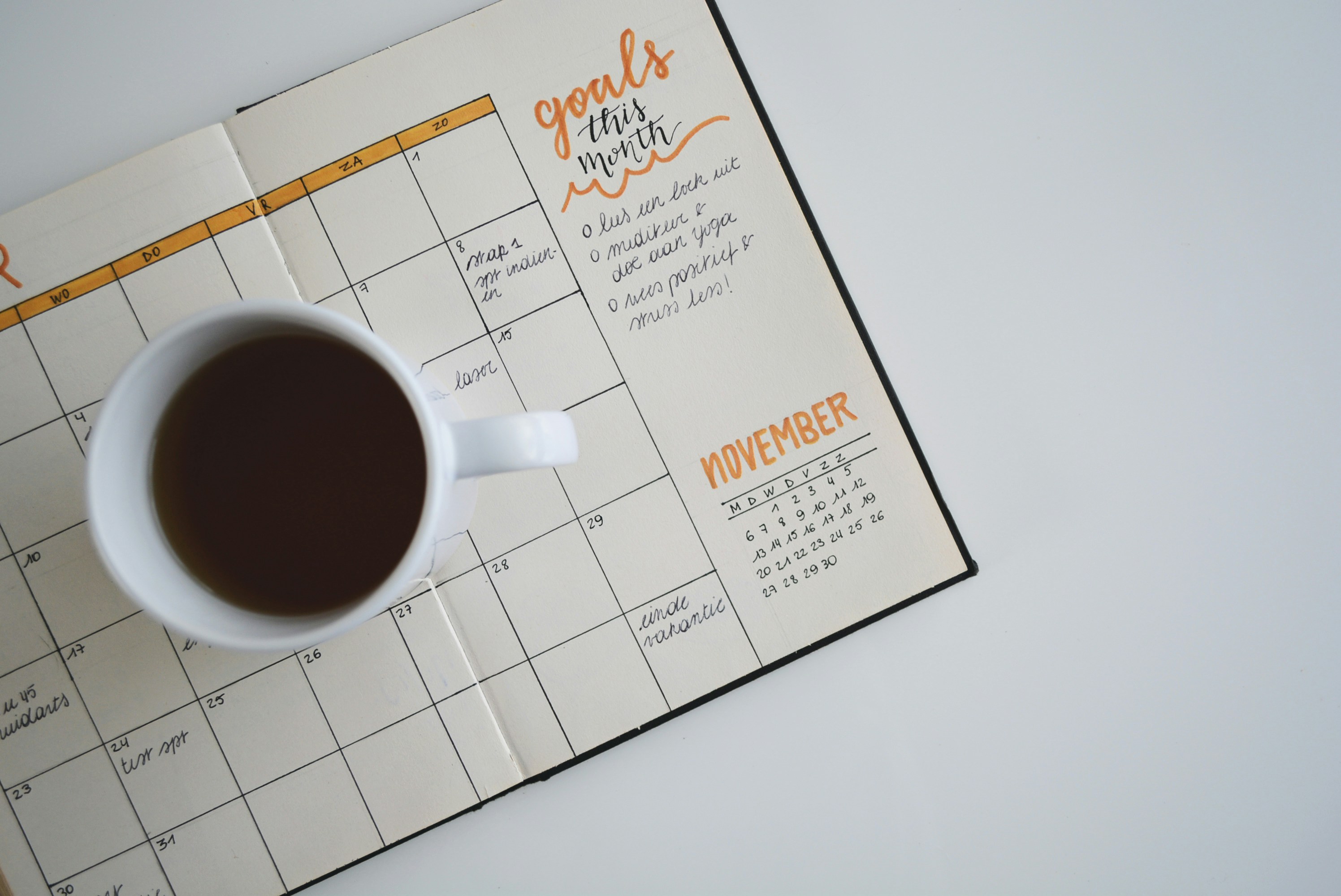Dec 13, 2023
Financial planning
Rainy day ready: how to build an emergency fund
There are lots of things in life we know are good for us and— things that we’re supposed to do. Annual physicals, regular exercise, going to the dentist, and getting a good night’s eight hours of sleep.
And when it comes to money, it may be easy to add having an emergency fund to that list. But if you miss some sleep one night, you can make it up the next. If you need money one day and don't have an emergency fund, that can kick off a debt spiral that's hard to dig out of.
Murphy's law states that anything that can go wrong, will go wrong. Unexpected things happen. And having an emergency fund to lean on instead of your credit card or a payday loan can help protect your finances.
If you’re not sure where to start, we have your back. At Plenty, we help modern couples make better financial decisions. We bring you and your partner together on money, helping you achieve financial goals, including building emergency funds, sooner.
Let’s learn about emergency funds, their uses and importance, and how much you should aim to save.
What is an emergency fund?
An emergency fund is liquid cash savings set aside specifically for when the unexpected arises.
The main purpose of an emergency fund is to provide easy access to money for unexpected expenses. Emergency funds can shield both your finances and your mental wellbeing from life's inevitabilities.
The funds are best kept separate from cash that you need for day-to-day spending. Emergency funds are commonly kept in savings accounts, money market accounts, or short-term CDs; Plenty’s emergency funds are kept in our lowest risk government-backed money market funds to help you earn more than the average savings account.
Why is an emergency fund important?
Monetary emergencies can occur unexpectedly and wipe away years of financial progress. Having emergency savings helps ensure that you can absorb shocks without much change to your day-to-day lifestyle (especially important if you have a family), or can avoid long-term setbacks.
One of the worst types of emergencies is one that happens during a bear market. If you don’t have an emergency fund (or a rich Aunt to borrow money from), you may be forced to sell investments at depressed prices. When the inevitable recovery occurs, you may miss out on gains.
Another emergency might occur if your car gets a flat tire. You might think you only need to change the one flat for $300, but tire experts recommend changing at least the tire on the other side for even wear and safety. That’s suddenly a $600 unanticipated expense that can be covered by your emergency fund.
Not all emergencies are bad either.
For example, perhaps you really want to buy a plane ticket to your best friend’s last-minute wedding in the south of France. Or maybe you suddenly need to pay an enrollment deposit for your dream graduate school because your long-shot application miraculously got accepted.
Whatever the “emergency,” it can make a world of difference to have money available for those moments when you need it quickly. Building an emergency fund makes sure you do.
When should I use my emergency savings?
An emergency fund is useful to cover a wide range of unexpected costs. According to a 5,000+-person survey by GoBankingRates, here are the five most common uses for emergency funds:
Major household repairs
Car expenses
Medical emergencies
Job loss
Cost of living increases
Sudden moves (e.g. job relocation; divorce)
Instead of racking up high-interest debt on a credit card, you can utilize cash from an emergency fund to pay for life’s unexpected expenses. Credit cards are certainly convenient, but they can quickly wreak havoc on your finances if you don’t pay them off in full each month.
For example, let’s say your basement floods due to a once-in-a-century storm. You have to rip out all the sheetrock, baseboards, and flooring. The cost for all these materials is over $8,000. Then you’ve got to pay someone to do the work if you don’t have the capability of doing it yourself.
If you don’t have an emergency fund, you may be forced to carry revolving credit card debt at an interest rate of 25%.
You work hard for your money, so it’s important to protect it. Emergency funds can also provide financial stability and reduce overall stress during times of turbulent events like natural disasters, recessions, or a pandemic. You might not know what to expect, but you’re prepared for it.
How much should you put aside for your emergency fund?
We recommend having a minimum of 3-6 months of living expenses saved. If you lose your job, you’ll have 3-6 months to find another. But the reality is, that you’ll likely have a larger buffer due to unemployment benefits, a potential severance package, and WARN Act pay if you work at a larger firm.
But it’s fine to start smaller. Any amount you have ready for an emergency is a step in the right direction.
There’s also no one-size-fits-all emergency fund amount because we all have different levels of risk exposure. If you’re temporarily freelancing, you may want a bigger emergency fund to smooth out the months when business is low. And if you’re a homeowner now with children in private school, you may need a larger fund than when you were renting with no children.
When you set up an emergency fund goal in Plenty, we’ll walk you through each consideration and recommend a plan for your unique details.
Here are some simple rules of thumb that apply to pretty much everyone:
Start with a minimum of 3 months of living expenses - Figure out your fixed expenses, which are your “mandatory” costs. Things like rent or mortgage payments, transportation, utilities, health insurance, groceries, etc. They may vary a bit each month, but add them up and look at the average total month to month. This is the amount your emergency fund needs to cover every month. Now take that number and multiply it by 3.
Work up to 6 months of living expenses - Double your initial 3-month goal to calculate how much you need to cover 6 months of living expenses. This is an emergency fund size you can feel great about because it provides added financial cushion and stability. Additional breathing room if you encounter a prolonged crisis can be invaluable.
Contribute regularly - Like most things in personal finance, small actions add up. Aim to contribute to your emergency fund every month. Saving steadily through automated transfers can help you stay on track (effortlessly) and help you reach your saving goals faster.
Prioritize liquidity - Low-or-no risk investment vehicles like Plenty’s SIPC-insured government money market fund, FDIC insured high-yield savings accounts, and short-term CDs are great options. You want to be able to access the cash quickly if needed.
Stay disciplined - As tempting as it may be to dip into your emergency savings for a splurge purchase, stay judicious. Only withdraw funds when you truly need the money for something vital that you can’t otherwise afford. Also, be sure to replenish any funds you take out as soon as you’re able.
Plenty helps you partner up and go farther together
At Plenty, we help couples create shared goals so you can build wealth faster. We recommend growing your emergency fund in a low-risk money market fund. You’ll be able to access your money quickly when you need it and there’s no fine to withdraw if you need the funds earlier than expected, unlike some financial products like CDs.
With our cash management product, you can earn 4.14% 7-day yield* interest on your savings. You can put your rainy day fund to work and earn 13x the national savings account average. We've negotiated access to the same money market fund where billionaires and hedge funds park their cash. It's a ~$20B fund that usually requires a $500 million dollar minimum investment.
With high interest rates, having an emergency fund can now make you money as well.
Wealth building shouldn't be exclusive, so your Plenty membership includes access to this fund — with an investment minimum of just $100.
Now that you understand why you need an emergency fund and how to plan for one, it’s time to get started. Plenty has all the tools you need to plan, invest, and track your savings. We help you achieve your goals as quickly and easily as possible so you’ll be ready for anything life has in store.
About Plenty
Plenty is a wealth management platform designed specifically for couples. We go beyond budgeting, making it simple to invest, save, and grow toward your future goals by unlocking access to the financial strategies of the wealthy. Ready to get started? Sign up for free today.
Enjoying the blog? Sign up for our newsletter for the latest news and expert advice about money, relationships, and everything in between.
——
*Plenty's cash management product invests 99.5%+ of the portfolio in US-government backed securities as of January 3, 2025. Although the strategy seeks to preserve the value of your investment at $1.00 per share, it cannot guarantee it will do so. You could lose money by investing in the strategy. Plenty's cash management product is SIPC insured. An investment in the strategy is not a bank account and is not insured or guaranteed by the Federal Deposit Insurance Corporation or any other government agency. The rate quoted is subject to change and will decrease or increase based on changes in market conditions, interest rates, among other factors. The rate quoted is net of transaction and advisory fees.
The information provided herein is for general informational purposes only and should not be considered individualized recommendations or personalized investment advice. The type of strategies mentioned may not be suitable for everyone. Each investor should evaluate an investment strategy based on their unique circumstances before making any investment decisions.
Investing involves risk, including risk of loss. Past performance may not be indicative of future results. Asset allocation, diversification, and rebalancing do not ensure a profit or protect against loss in declining markets. Examples provided are for illustrative purposes only and not intended to be reflective of results you can expect to achieve.
Tax-loss harvesting involves certain risks, including, among others, the risk that the new investment could have higher costs than the original investment and could introduce portfolio tracking error into your accounts. There may also be unintended tax implications. We recommend that you consult a tax professional before taking action.
Plenty does not provide legal or tax advice. Where specific advice is necessary or appropriate, individuals should contact their own professional tax and investment advisors or other professionals (CPA, Financial Planner, Investment Manager) to help answer questions about specific situations or needs prior to taking any action based upon this information.
All expressions of opinion are subject to change without notice in reaction to shifting market, economic, and geo-political conditions
AUTHOR

Emily Luk
CPA, CFA - CEO and Cofounder of Plenty
Emily is the ceo and cofounder of Plenty. Started by a husband and wife team, Plenty is a wealth platform built for modern couples to invest and plan towards their future, together. Previously, she was VP of Strategy and Operations at Even (acquired by Walmart/One) and a founding team member of Stripe's Growth and Finance & Strategy teams. She began her career as a VC, and was one of the youngest nationally to complete her CPA, CA and CFA designations.
More
Financial planning
THIS SITE IS FOR INFORMATIONAL PURPOSES ONLY AND SHOULD NOT BE RELIED UPON AS INVESTMENT ADVICE. This site/application has been prepared by Plenty and is not intended to be (and may not be relied on in any manner as) legal, tax, investment, accounting or other advice or as an offer to sell or a solicitation of an offer to buy any securities of any investment product or any investment advisory service. The information contained in this site/application is superseded by, and is qualified in its entirety by, such offering materials. This site/application may contain proprietary, trade-secret, confidential and commercially sensitive information.





































